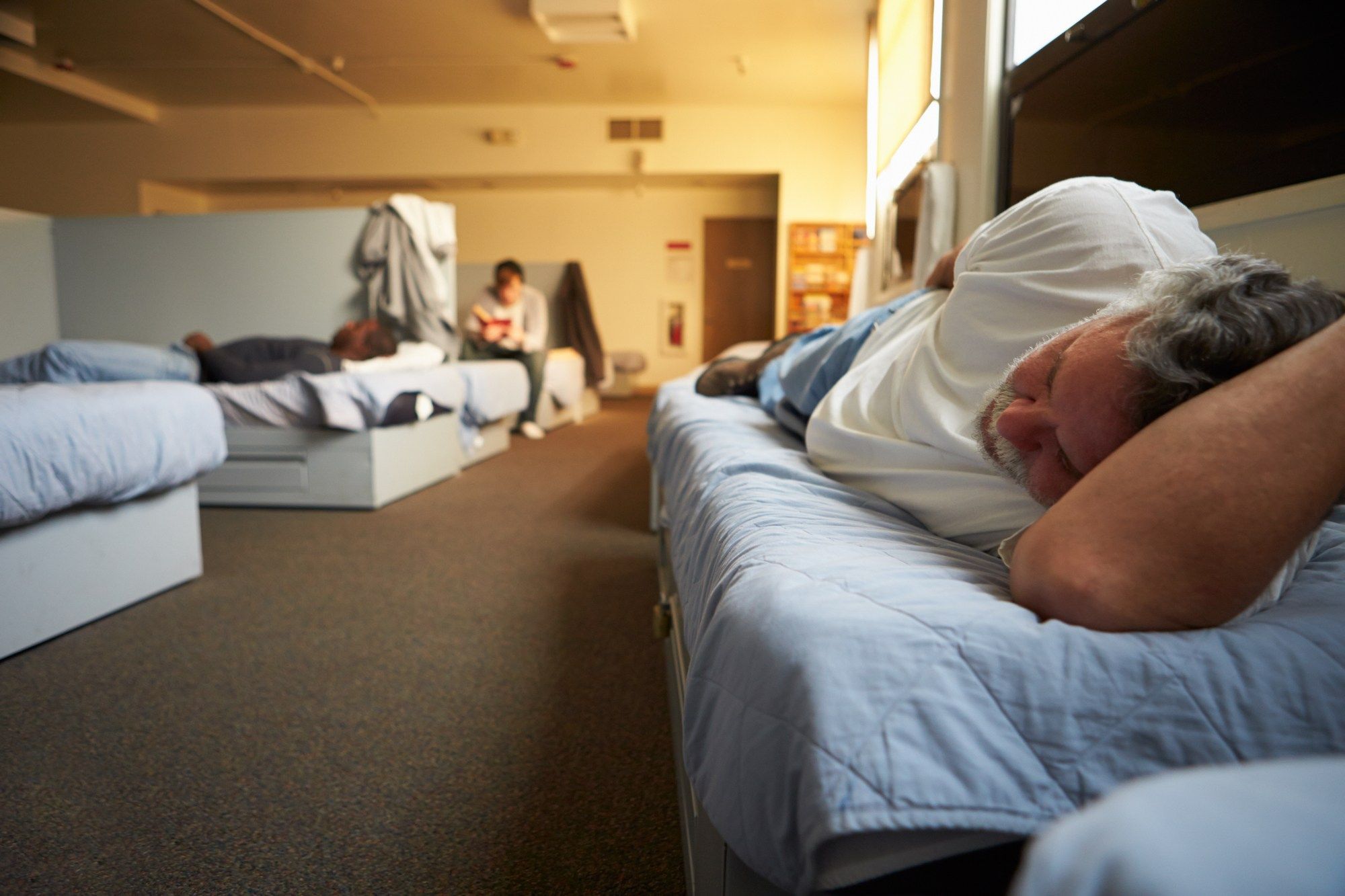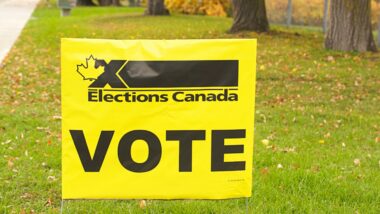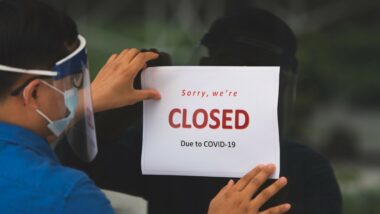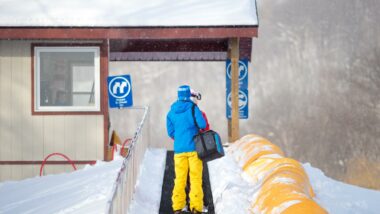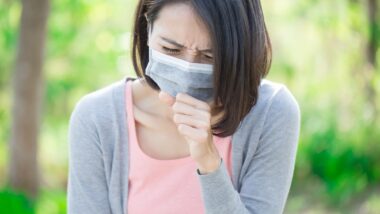Top Class Actions’s website and social media posts use affiliate links. If you make a purchase using such links, we may receive a commission, but it will not result in any additional charges to you. Please review our Affiliate Link Disclosure for more information.
The City of Toronto is the target of a new lawsuit alleging that many of the city’s homeless shelters fail to allow sufficient distance between people to protect them from the spread of COVID-19.
The Advocacy Centre for Tenants Ontario (ACTO), The Canadian Civil Liberties Association, the Black Legal Action Centre and the HIV & AIDS Legal Clinic Ontario filed the lawsuit earlier this month claiming that many of Toronto’s shelters fail to allow two metres distance between individuals in accordance with federal and provincial public health guidance.
According to the advocacy groups, shelters are only required to have a distance of 2.5 feet between beds, and they’re allowed to use bunk beds. Respite facility standards reportedly do not require minimum spacing between beds.
The homeless shelter lawsuit claims that these standards were not implemented in response to COVID-19, which requires a minimum of two metres distance. The advocacy groups claim that these standards are “grossly inadequate” given the highly-contagious nature of the novel coronavirus.
The shelter standards were reportedly adopted by Toronto’s city council in 2015, and the more permissible respite standards were approved in 2018.
“Physical distancing is known to be the central health strategy for managing the health impact of COVID-19, at both population and individual levels,” the advocacy groups wrote in a letter to Toronto city officials.
The letter, which is dated April 20, 2020, notes that there were 113 confirmed cases of COVID-19 in 11 of Toronto’s shelters.
“We fear that this number will only continue to rise in coming days,” the letter states.
The advocacy groups argue that Toronto “is operating its shelter system and maintaining Standards that are discriminatory and violate the right to life and security of the person of shelter residents under sections 7 and 15 of the Charter of Rights and Freedoms, and also breach the Ontario Human Rights Code.”
Due to the highly contagious nature of COVID-19 congregate living facilities, such as shelters for the homeless, pose an increased risk of spread.
“The City’s shelter system is no exception,” the advocacy groups wrote in their letter. “The numbers of outbreaks and cases are rising at an alarming rate among our City’s most vulnerable. COVID-19 represents an urgent health crisis in the City’s shelter system.”
The advocacy groups are calling on Toronto city officials to issue binding directives to override the standards for shelters and respites, or to issue a binding interim standard for the facilities.
They point to COVID-19 pandemic guidance by the Public Health Agency of Canada, which has recommended a minimum standard for sleeping areas in which beds or mats are placed at least two metres apart and all clients sleep head-to-toe. The Ministry of Health for the Province of Ontario issued similar guidance regarding the two metre distance between beds and mats in sleeping areas, plus guidance that bunk beds should not be used during the COVID-19 pandemic.
The minimum standards set forth in these guidelines apply to all individuals regardless of whether or not they are symptomatic, according to the letter.
The inadequate standards put in place at shelters and respites in Toronto not only increases the risk of COVID-19 transmission, it also affects residents’ rights to life and security.
“In the context of the COVID-19 pandemic, the current cramped conditions in the City’s shelter system constitute an infringement of the rights to life and security of shelter residents,” the homeless advocacy groups state. “The predictable increased risk of COVID transmission resulting from inadequate spacing in a congregate living setting represents a constitutionally-cognizable threat to the life and security of the person interests of all shelter residents.”
“Indeed, there is ‘virtual certainty’ that the continued spacing of beds 2.5 feet apart and the continued use of bunk beds will result in more frequent and more severe outbreaks and, ultimately, an increase in preventable deaths,” the letter states.
People experiencing homelessness have a higher risk of adverse health consequences or death because the homeless population has higher rates of chronic health conditions such as mental health issues, cardiorespiratory disease, HIV and substance dependence, the advocacy groups state.
Black and Indigenous residents and people with disabilities are also allegedly disproportionately affected by the lax shelter and respite standards, as these groups tend to be overrepresented in Toronto’s homeless population.
Residents are not the only ones affected by these inadequate standards, the advocacy groups argue. Staff members who work at the facilities are also put at risk, as are their families and the broader community.
The letter concluded by stating that the groups would take legal action seeking injunctive relief if Toronto failed to change the standards for shelters and respite facilities during the COVID-19 pandemic.
According to Global News, there were 135 confirmed cases of COVID-19 in residents and staff in Toronto shelters as of Friday. 14 of the city’s 75 shelters reportedly have had COVID-19 outbreaks.
What do you think about this homeless shelter lawsuit? Could the city of Toronto do more to allow sufficient distance between people living in shelters? Tell us your opinion in the comment section below!
Read More Lawsuit & Settlement News:
Mission Inmate Class Action Lawsuit Filed Over COVID-19 Infested Institution
Operator of Senior Care Homes Facing Class Action Lawsuit Over COVID-19 Response
COVID-19 Price-Gouging Lawsuit Filed in Windsor
Canada Roundup Glyphosate Cancer Class Action Lawsuit Investigation
ATTORNEY ADVERTISING
Top Class Actions is a Proud Member of the American Bar Association
LEGAL INFORMATION IS NOT LEGAL ADVICE
Top Class Actions Legal Statement
©2008 – 2024 Top Class Actions® LLC
Various Trademarks held by their respective owners
This website is not intended for viewing or usage by European Union citizens.

